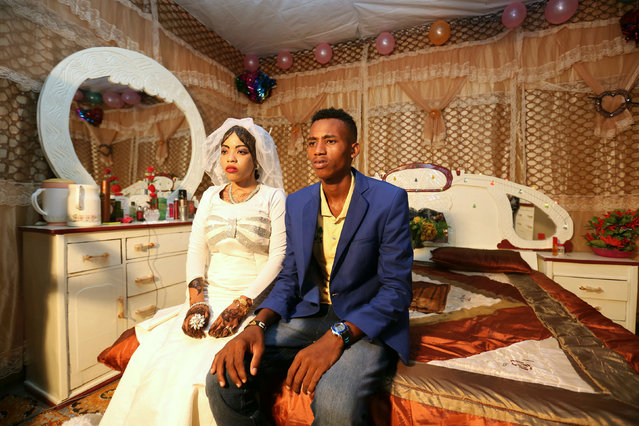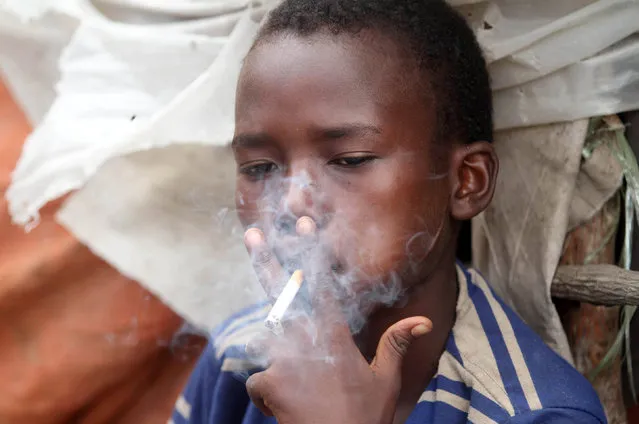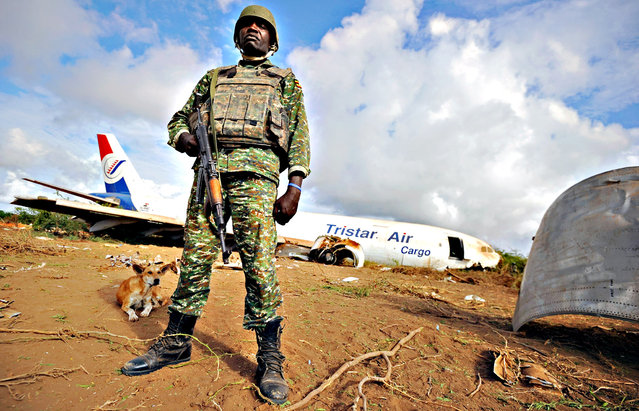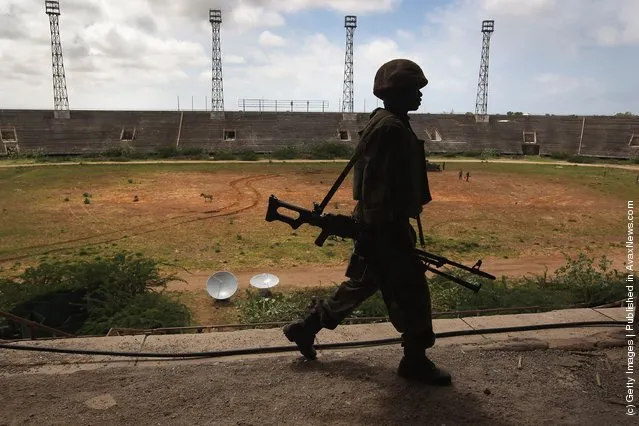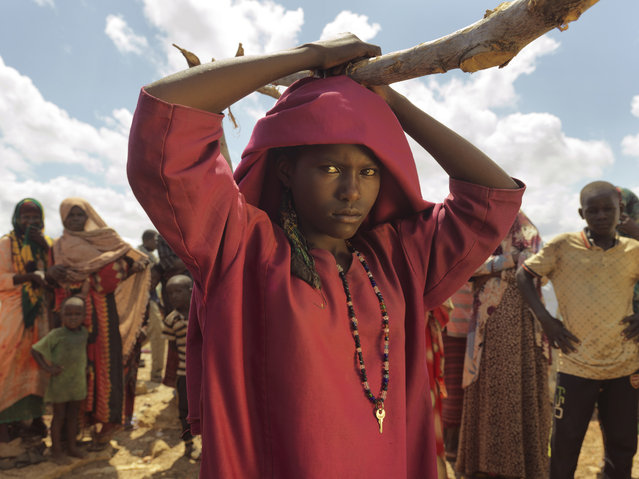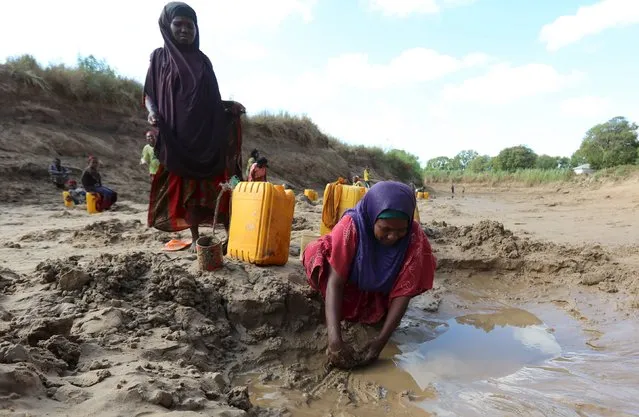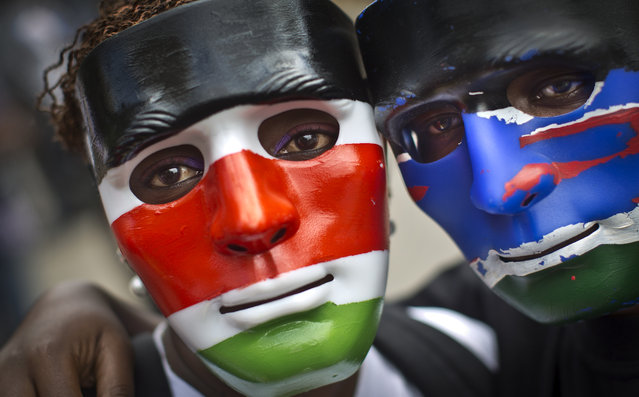
Protesters wear masks, the left in the colors of the Kenyan national flag, as they join others carrying mock coffins and red-painted crosses, symbolizing the blood of the 28 non-Muslims singled out and killed in the recent attack on a bus in Mandera by Somali militant group al-Shabab, outside government offices in downtown Nairobi, Kenya Tuesday, November 25, 2014. (Photo by Ben Curtis/AP Photo)
06 Feb 2015 13:02:00,post received
0 comments

